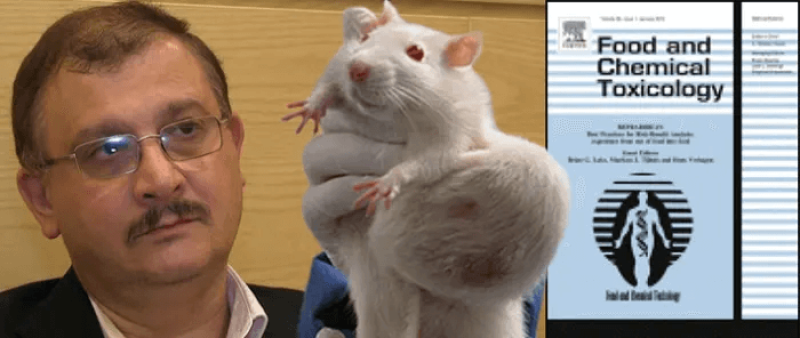GMO food and feed have more than twenty years of safety record. During these twenty years, each day hundreds of millions of people consume GMO derived food.
…
Not a single person in the world has been ill or died as a result of consuming GMO derived food. Annually hundreds of millions of animals are fed with GMO derived feed and there has not been a single documented case of adverse effects as a result of consuming GM feed. And the Europeans who are against GM cultivation are among the top ranked importers of GM food and feed in world.
Despite this extensive safety record the anti GM groups continue to propagate false information about the carcinogenicity and danger of GMO for health. Citing articles published by [French molecular biologist Gilles-Éric Séralini] and coworkers… the Anti-GM activists claimed that GM food crops are dangerous because they cause cancer, damage liver and kidneys and so on.
…
After many scientists have shown that Seralini’s experiments had many flaws, he used wrong statistical methods to analyse the data, and he misrepresented the data, the Journal [Food and Chemical Toxicology] finally retracted the article.
…
The conclusion is crystal clear: Seralini’s article presents many important deficiencies; therefore it has little scientific value. Besides the [European Food Safety Agency], six French National Academies (Agriculture, Medicine, Pharmacy, Sciences, Technologies, and Veterinary Sciences) have rejected the scientific validity of the article.
[Editor’s note: This is part two of a series. Read part one, part three, part four and part five here.]































